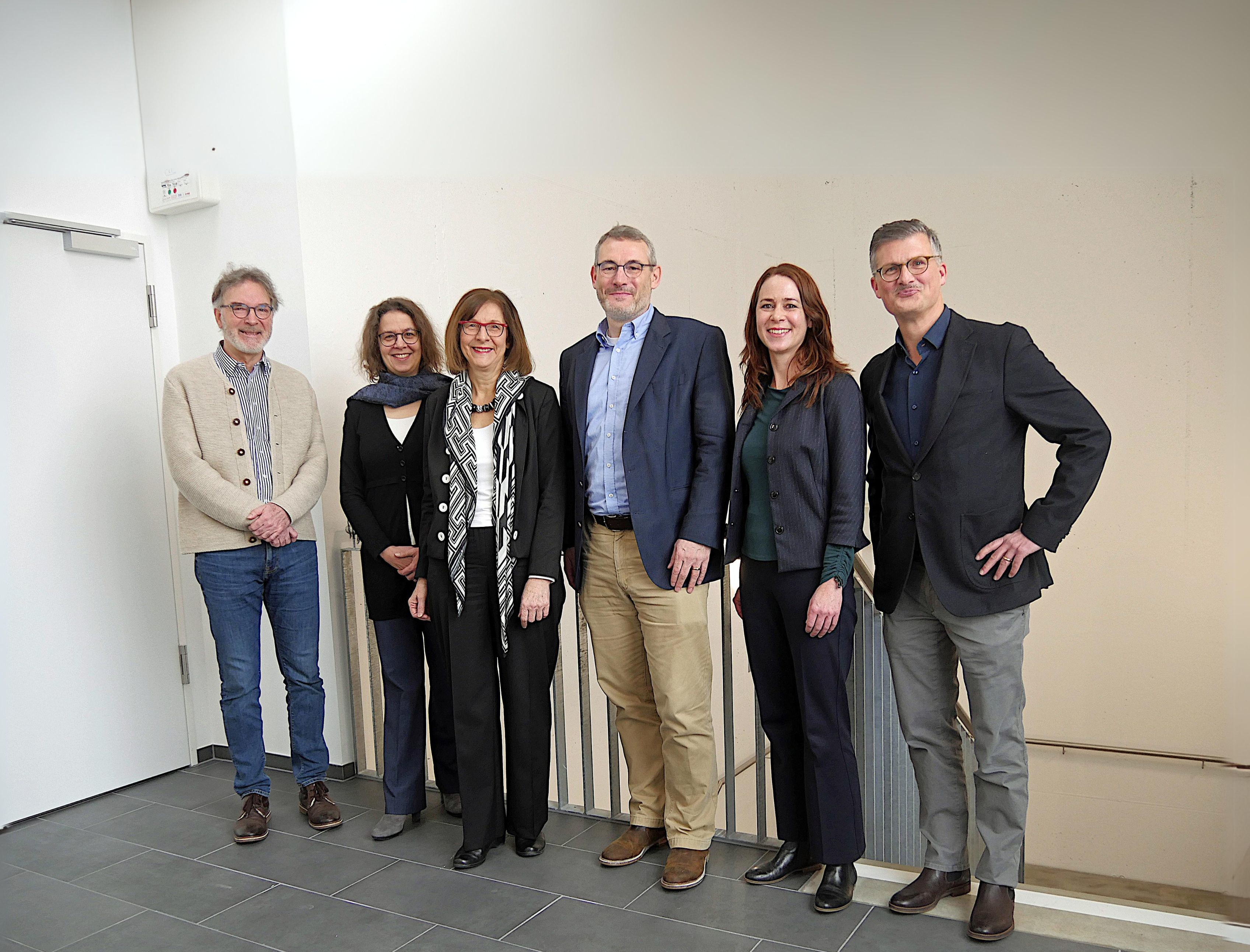
New vice rector team
University of Konstanz Senate elects new vice rectors for the period until 2027.
The new vice rectors of the University of Konstanz will be Isabell Otto, a media studies professor, Dirk Leuffen, a political science professor, Rüdiger Wilhelmi, a law professor, and Christine Peter, a chemistry professor. In a meeting on 31 January 2024, the University of Konstanz's Senate elected the new members of the Rectorate for a term of three years. The elections were necessary because the term of office of the current vice rectors expires at the end of March. The new term of office begins on 1 April 2024.
"I would like to express my heartfelt thanks to the outgoing vice rectors for their exceptional collaboration. They navigated the University of Konstanz through crucial years, from the covid-19 pandemic to the energy crisis and preparations for the next phase of the Excellence competition", says Rector Katharina Holzinger. "I am also very much looking forward to working with the new vice rectors. There are important years ahead for the University of Konstanz – especially during this next phase of the Excellence competition. Our vice rectors' experience and expertise is a real asset to the university".
The new team of vice rectors:
Dirk Leuffen will be Vice Rector for Research, Innovation and Impact. From 2015 to 2019 he served as Vice Rector for Research and Academic Staff Development. Dirk Leuffen has been a professor of political science at the University of Konstanz since 2011. His research interests include European integration, decision making in the European Union and the interplay between domestic and international politics. Dirk Leuffen is a principal investigator in the project "Conditions of International Solidarity" and a member of the extended board of the Cluster of Excellence "The Politics of Inequality".
Isabell Otto was elected as Vice Rector for Diversity and Academic Staff Development. In 2010, she was appointed to a junior professorship at the University of Konstanz, and has been a professor of media studies since 2017. Her research focuses on digital and mobile media. Isabell Otto is currently a member of the German Research Foundation's (DFG) network "Gender, Medien und Affekt" as well as Konstanz's Centre for Human | Data | Society. She is also a project leader in the Research Institute for Social Cohesion. Isabell Otto was also head of the Department of Literature Art and Media Studies. She will serve as the university's equal opportunity representative (for academic staff) until starting her new position as vice rector.
Christine Peter was confirmed as Vice Rector for Sustainability, Information and Communication Technology / CIO. Since 2013, she has been a professor of theoretical chemistry with a research focus on computer simulations of biomolecular systems at the University of Konstanz. Christine Peter was the dean of studies in the Department of Chemistry from 2014 to 2021. She is a member of several interdisciplinary research networks involving the fields of chemistry, biology and physics. Since 2024, she has been a chair of the Scientific Council in the John von Neumann Institute for Computing (NIC) at Forschungszentrum Jülich (Germany).
Rüdiger Wilhelmi will take over as Vice Rector for Teaching. Since 2010, he has been a professor of civil law with a focus on business law at the University of Konstanz. Rüdiger Wilhelmi previously worked as an in-house lawyer in the business sector. From 2018 to 2021 he was dean of the Faculty of Politics, Law and Economics. Since 2018 he has been a member of the Senate and, since 2023 head of the Department of Law. Rüdiger Wilhelmi is also director of the University of Konstanz's "Institut für Rechtstatsachenforschung" (legal facts research institute), chair of the "Konstanz Seminar zur Rechtsentwicklung" (seminar on law development) and a member of the extended directorate of the Centre for Human | Data | Society. He also collaborates, for example, with the Cluster of Excellence "The Politics of Inequality".
